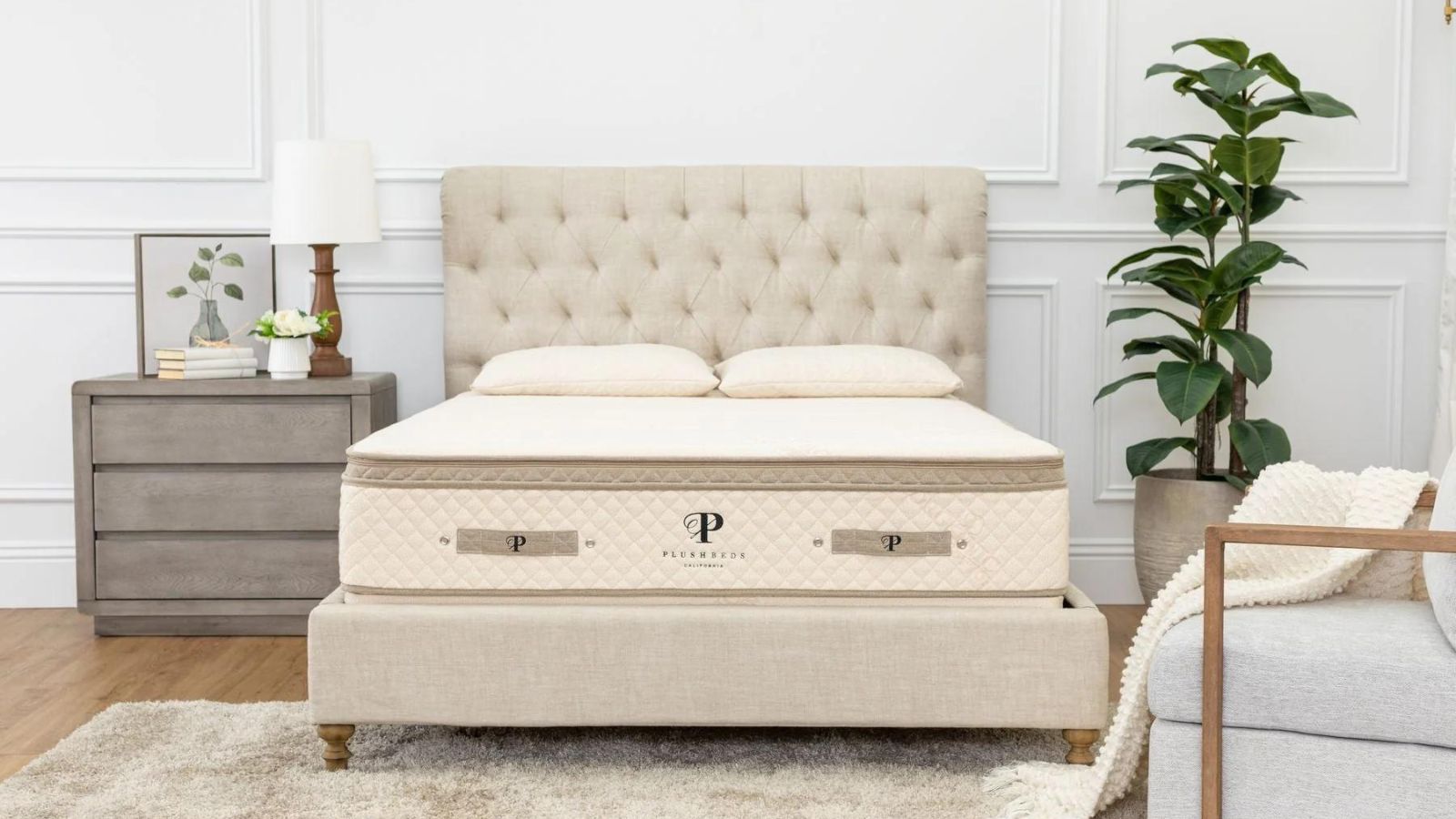
As H&G's resident sleep writer, I'm often asked: 'when should you buy a new mattress?' My answer: sooner than you think. You shouldn't wait until the springs start squeaking and the foam starts sagging. If you act early, you can save yourself from months or years of bad sleep.
Even the best mattress will wear and tear over years of nightly use. Your mattress might start to degrade within a few years, or you might get a few decades out of it, depending on which mattress type you buy. The point is that, at some point, your mattress will give up the ghost. This article should teach you how to spot the early warning signs so that you can get a new bed in plenty of time.
I asked a panel of mattress manufacturers and medical professionals to share the signs that show your mattress is past its prime. To save you time and money in your search for a new mattress, I've picked out a few of my favorite beds to solve common sleep problems. Each mattress is tried and tested by an H&G sleep expert for comfort; support; breathability; motion isolation; edge support; and the all-important price.
When should you buy a new mattress?
Before we begin, a quick sense check − if you're looking for the signs that your old mattress needs replacing, then you've come to the right place. If, however, you want to know the best time to buy a new mattress, then I recommend you read the relevant guide to get the best deal.
1. You see obvious signs of aging
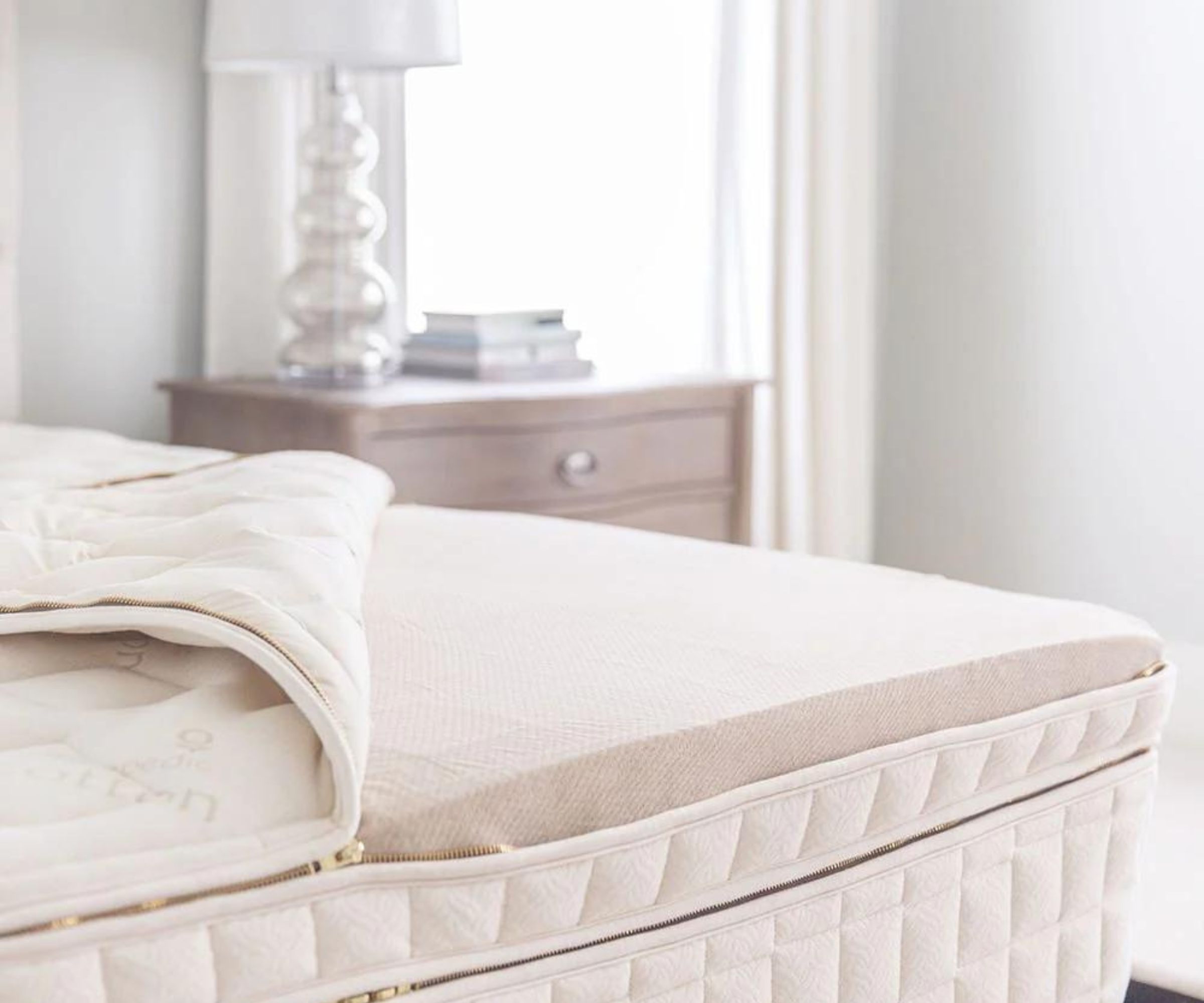
The clearest signs that you need a new mattress are cosmetic. You might see that the surface of the mattress has incurred indents and impressions from where you tend to lie on the bed. Once you remove the fitted sheet, you might see that your mattress has accrued unsightly yellow stains. This sort of discoloration is often the result of bacteria settling into the mattress. If you're waking up with watery eyes or a persistent cough, this might be why.
You might feel that you need a new mattress, even before you see the signs. Take note of any new lumps and bumps in your mattress. If you've got an old-fashioned innerspring, then you'll hear that you need a new mattress: the coils will start to creak and squeak.
'Learning how to clean a mattress is the key to elongating its lifespan,' says Dr. Grant Radermacher, 'and don't underestimate the importance of rotating your mattress to keep it in sleep-worthy shape. Make sure you're rotating your mattress (and flipping it, if it's dual-sided) every six months.'
2. Your body has changed significantly
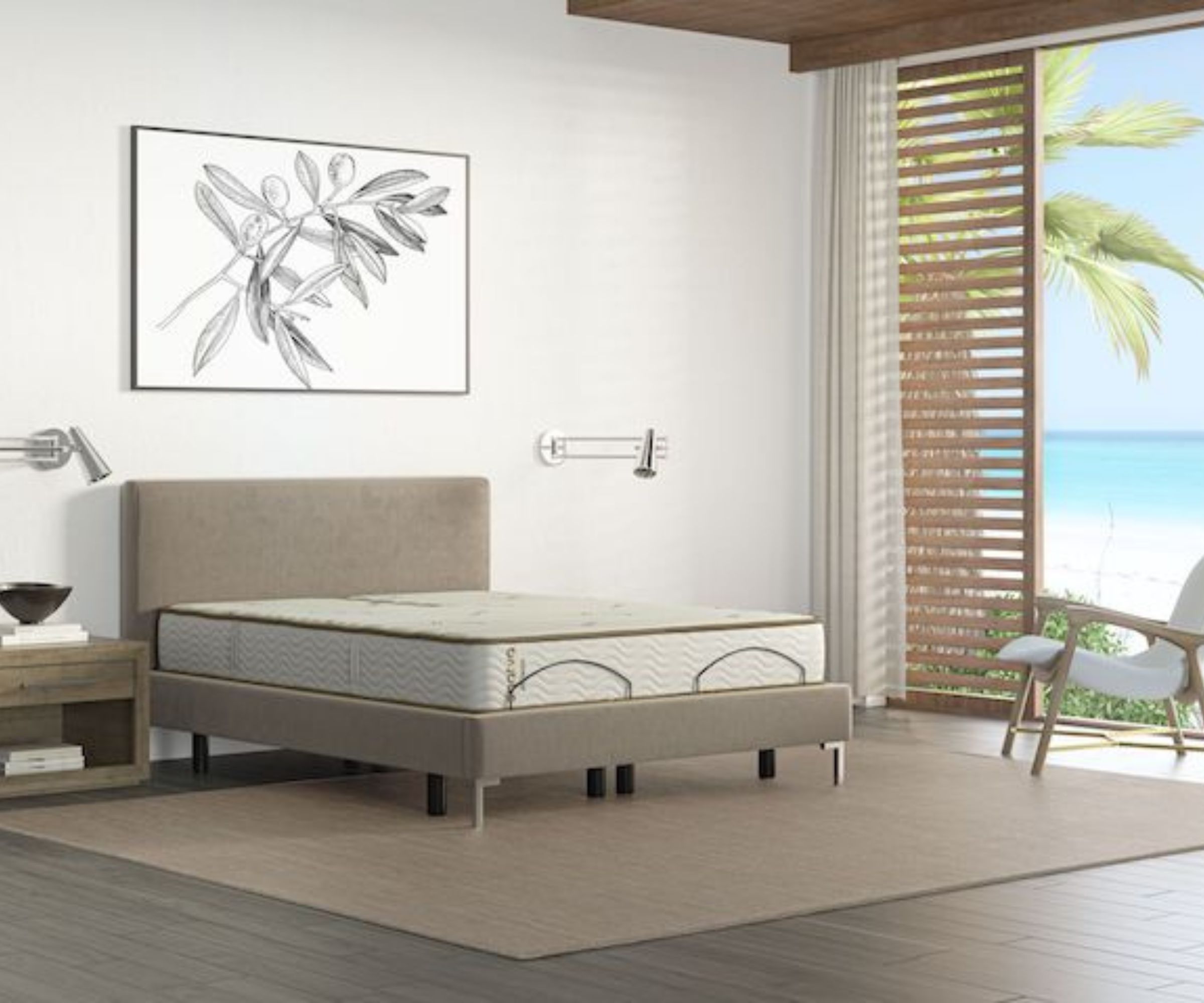
It's not just your mattress that changes shape over the years – your body does, too. Licensed chiropractor Dr. Ben Carvosso explains that, as you age, your sleep needs change, so 'you may find your current mattress is no longer supporting you as it should.'
'Whether you gain weight or lose it, a new mattress might help to improve your sleep.' Dr. Ben advises that 'smaller-framed individuals might benefit from more cushioning, while larger individuals tend to find a firmer mattress more supportive.'
If you consistently wake up with aches and pains, then it could be your body's way of telling you that you need a new mattress. Of course, even the best mattress can't cure your aches and pains, but it could take a lot of pressure off your joints and help you to sleep more comfortably. I suggest you discuss with a chiropractor or your primary care physician before you buy a new mattress to make sure it's the right fit for you.
3. You always wake up in a sweat
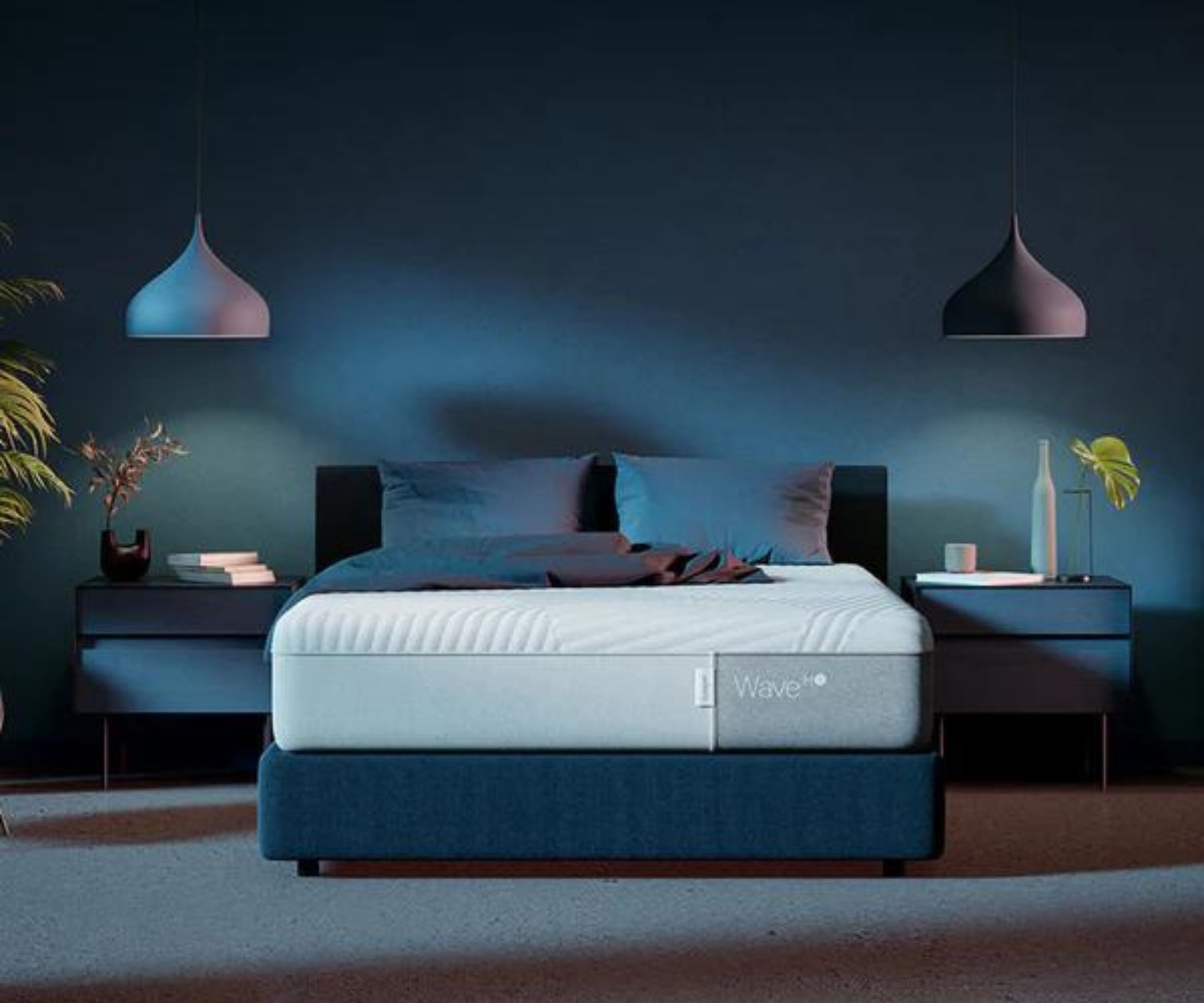
If you suffer from night sweats or hot flashes, or you simply tend to run a little warm, then you're what's known as a hot sleeper. Dr. Chester Wu advises that, 'if you're getting too hot while you sleep despite other efforts at temperature control, then you may need a new mattress'.
Your average memory foam mattress is a total heat trap: all that thick foam doesn't leave much room for air to flow. If you like the look and feel of foam, but you're keen to keep cool, then I suggest you invest in a gel memory foam mattress to carry hot air away from your body and out of the bed.
Hot sleepers would be better served by a hybrid mattress, which combines the plush comfort of memory foam with the airflow of an innerspring. Alternatively, opt for a latex mattress: the open-cell structure of the foam leaves plenty of room for air to flow.
You should consider one of the best cooling mattresses to dissipate heat and wick moisture. Before you buy, though, consider whether there are other, more affordable changes you can make to your sleep space. A set of the best cooling sheets or the best cooling comforter could go a long way towards helping you sleep more comfortably.
This high-tech hybrid is wrapped in a SmartClimate Dual Cover system to regulate your temperature and lined with spring coils to boost breathability with each compression and decompression. It's just a shame it's so expensive.
You can find more detail in our Tempur-Pedic ProAdapt Mattress review.
If you're a hot sleeper, and you're keen to shop more sustainably, then you'll find a lot to like about this latex hybrid. According to our expert tester, Alex, the Saatva Latex Hybrid Mattress is supple and supportive, with minimal motion transfer and all-natural cooling.
You can find more detail in our Saatva Latex Hybrid Mattress review.
To get the look and feel of memory foam without the heat retention, you need a gel mattress. This one is infused with a cooling blend of copper and green tea to dissipate heat, wick moisture, and block odors.
You can find more detail in our Zinus Cooling Green Tea Mattress review.
4. Your sleep arrangements are changing
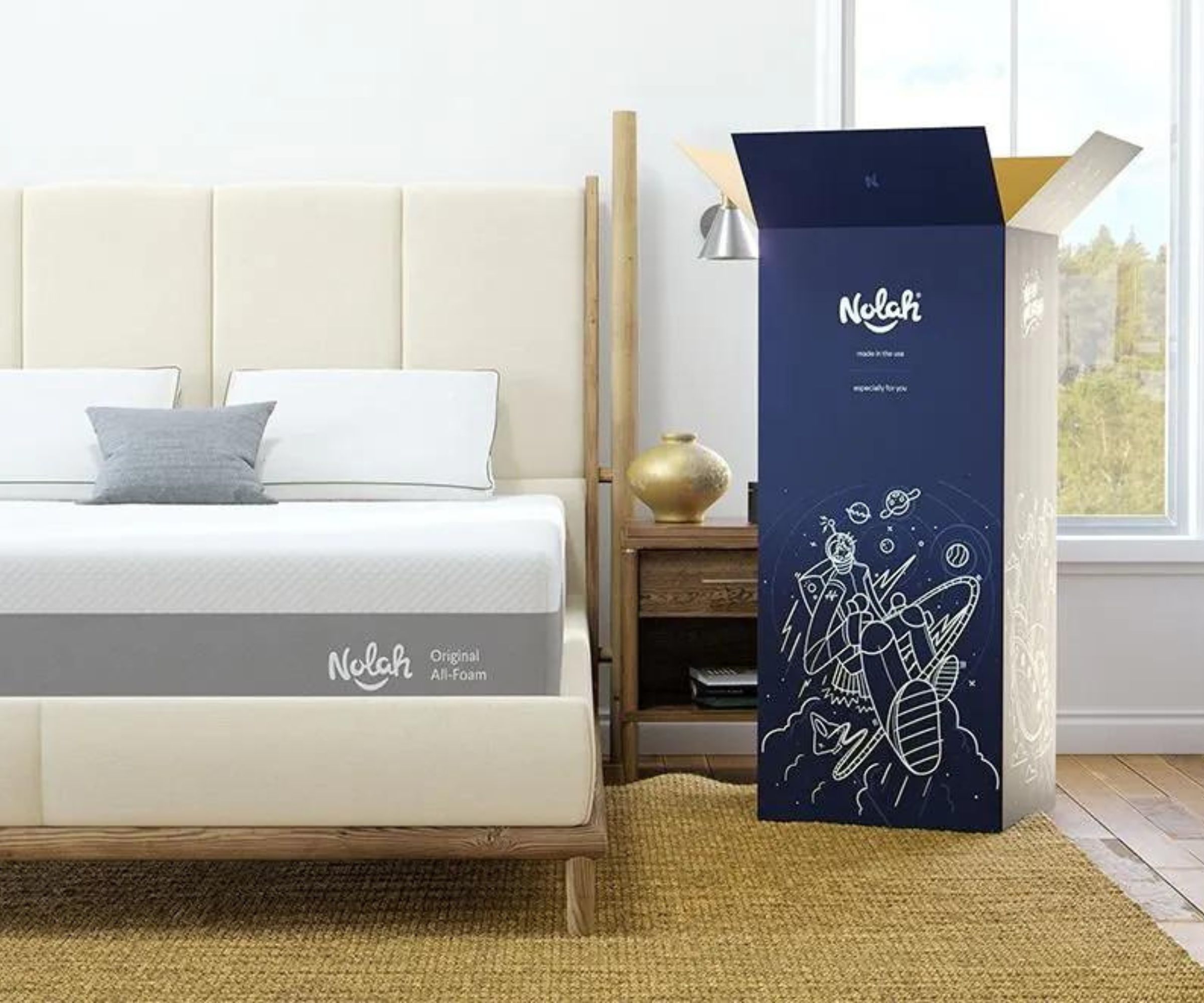
Perhaps you've always slept alone, but now you're planning on sharing a bed with your pet or partner: you'll want to find a mattress that's big enough for both of you. Or maybe you're moving house. Whether you're upgrading or downsizing, you'll need to find a mattress that fits your new space.
Before you buy, I suggest you consult our mattress size chart and double-check the dimensions of your bed frame and bedroom.
If you're at the very start of your mattress shopping journey, and you're still weighing up the pros and cons of different mattress sizes, then you're in luck: I've summarized the pros and cons of Queen vs Full, Queen vs King, and King vs California King beds.
5. You just can't get comfortable
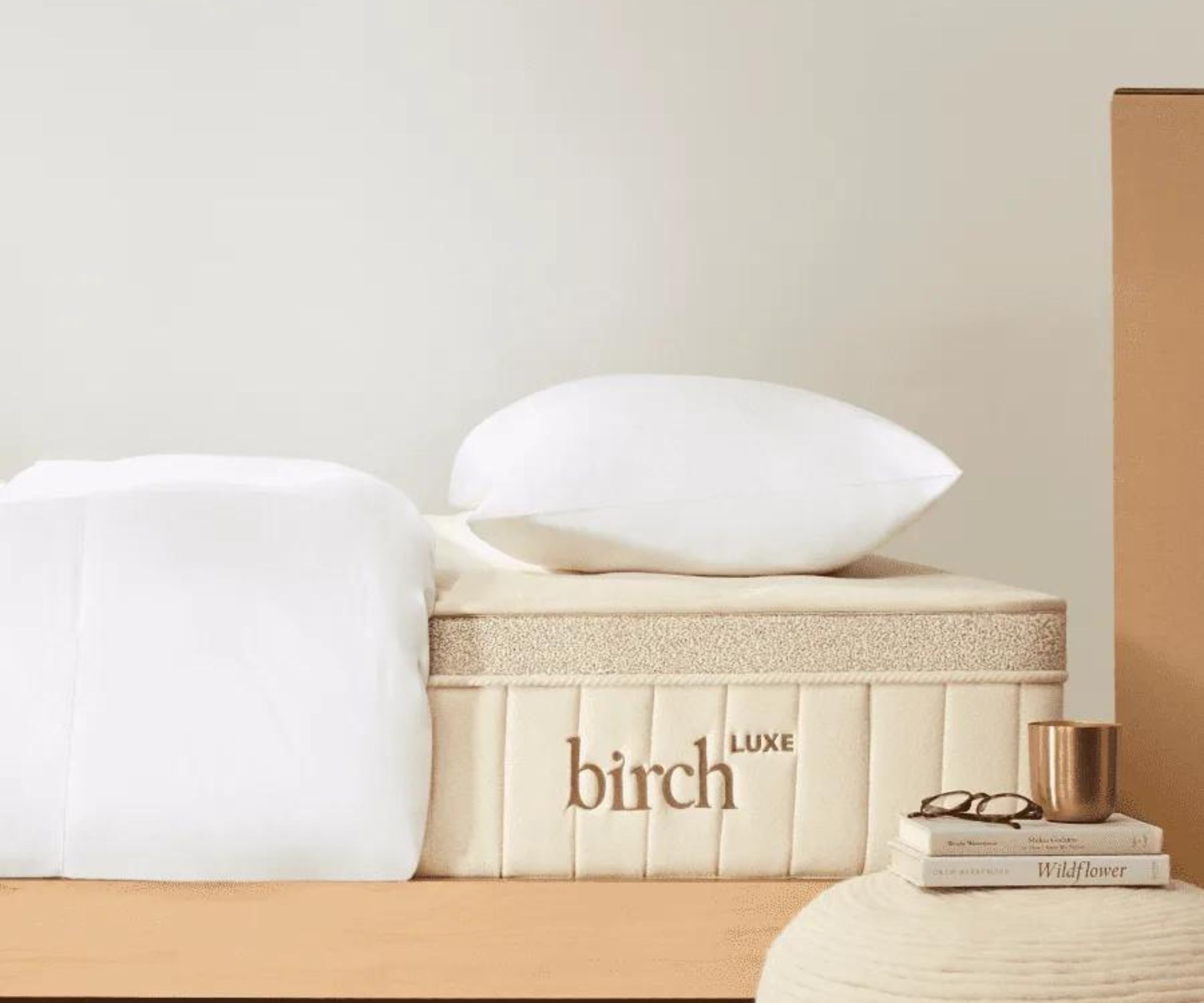
Perhaps you've only recently bought your mattress, but you just can't get comfortable. 'If you find you sleep better on different mattresses, like when you're staying at a hotel or a friend's place, then it might be time to think about getting a new mattress,' says Dr. Chester.
This time, slow down and take a second to think about what you need from a mattress. Your sleep positions, your personal values, and your budget constraints all inform which mattress you should buy.
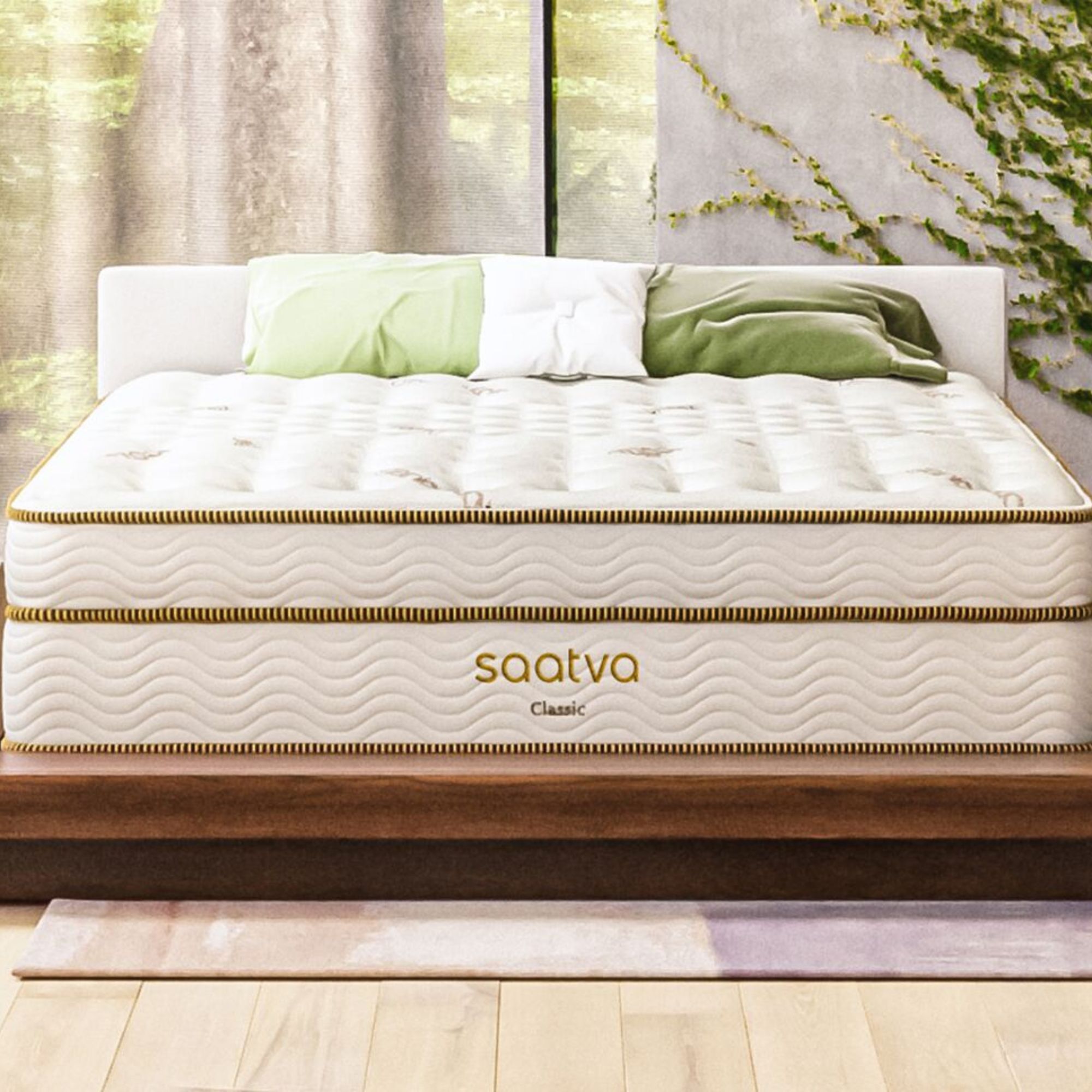
We've tested dozens of beds over the years, but the Saatva Classic Mattress is still our favorite. Known for its excellent motion isolation and outstanding edge support, this luxury innerspring is our reigning champion for the title of 'best mattress', four years running.
You can find more detail in our Saatva Classic Mattress review.
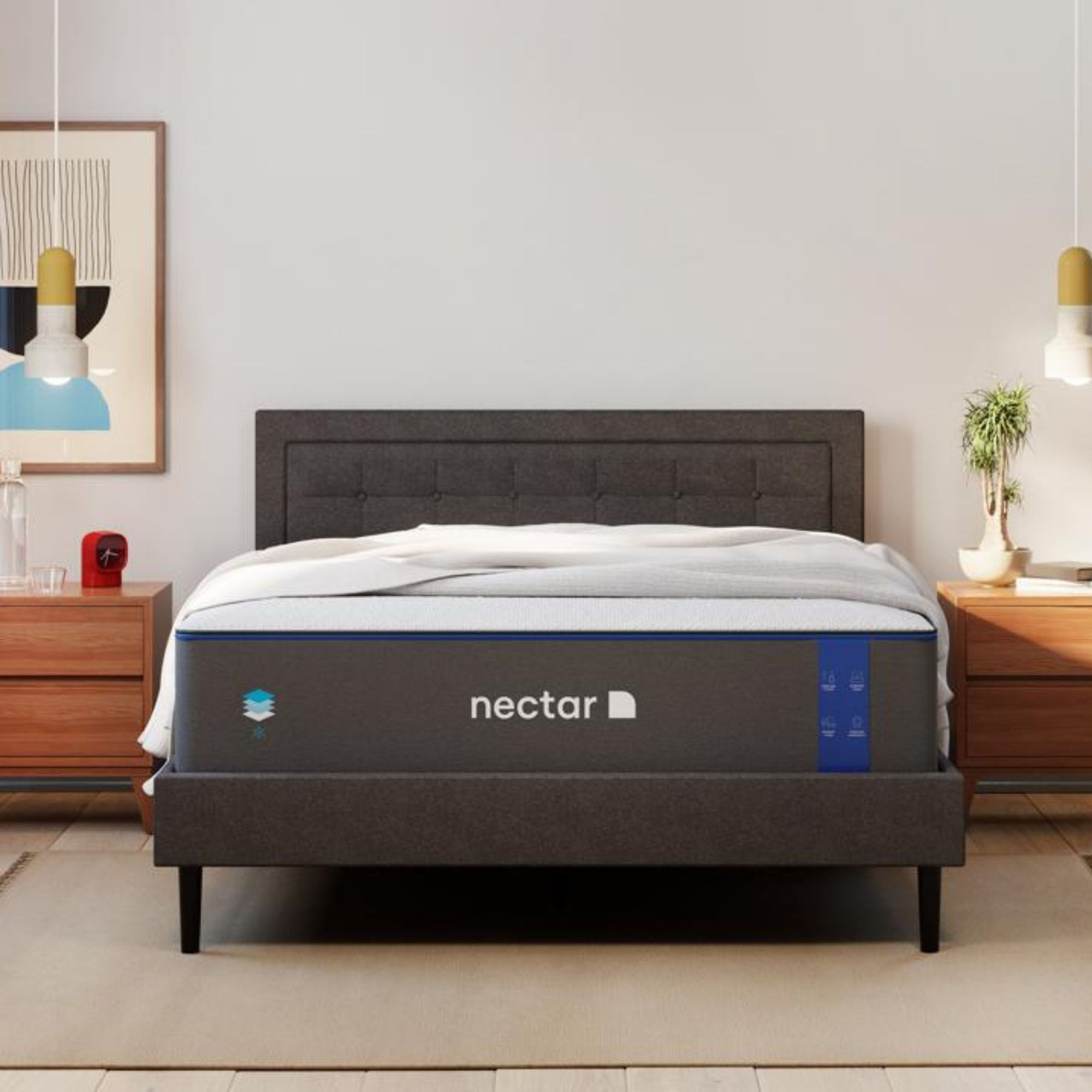
If you suffer from aches and pains, then you might appreciate the pressure-relieving properties of memory foam. Our expert tester, Casey, tried the Nectar Memory Foam Mattress and found it's the only bed that eases the aches from her fibromyalgia.
You can find more detail in our Nectar Memory Foam Mattress review.
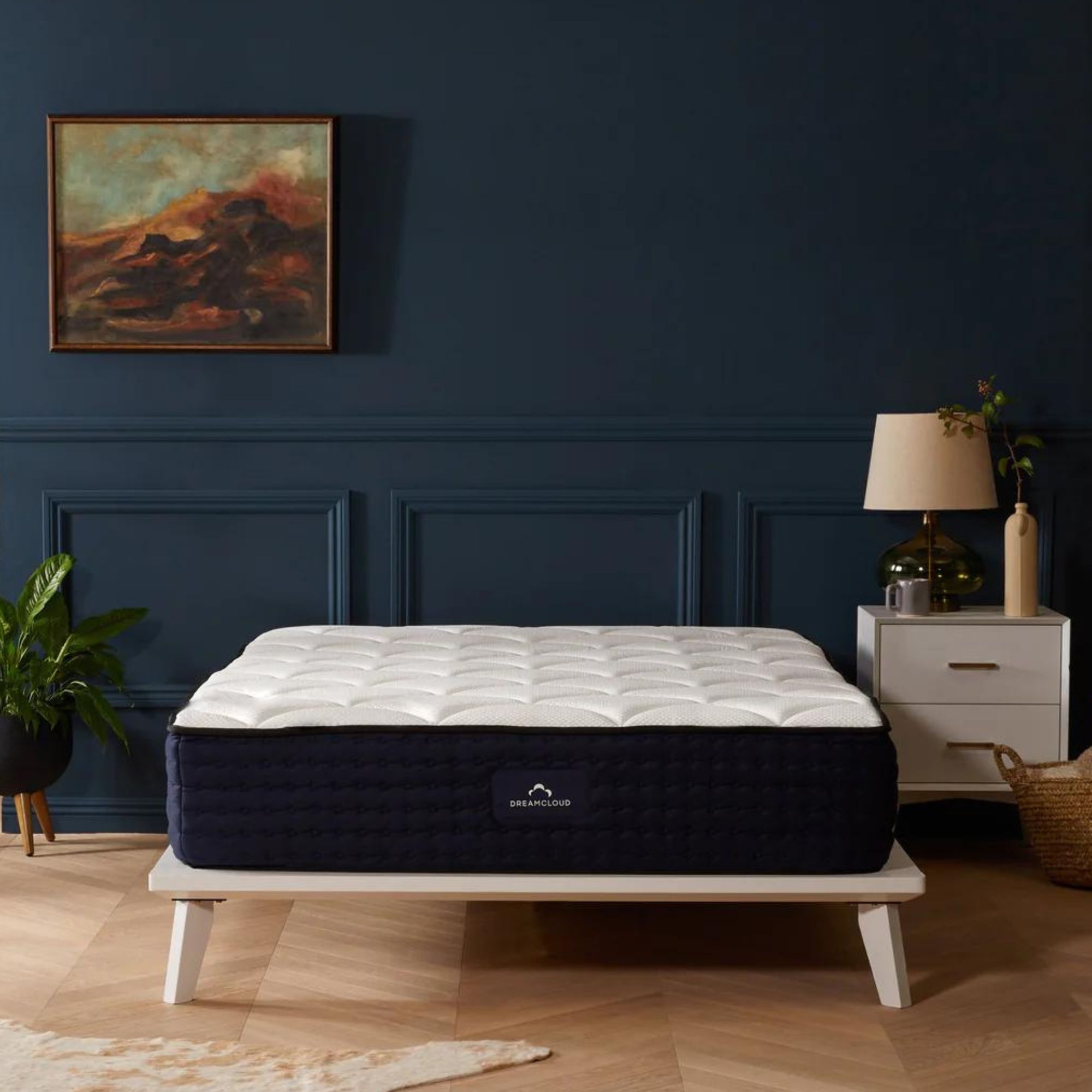
This mattress makes into most of our buying guides, and with good reason. The DreamCloud Luxury Hybrid Mattress marries the comfort of memory foam with the airflow and support of an innerspring for a very reasonable price.
You can find more detail in our DreamCloud Luxury Hybrid Mattress review.
Buying a new mattress FAQs
How long should a mattress last?
I've written an entire article answering the question: 'how long should a mattress last?' If you don't have time to read the whole thing, here are the highlights.
The mattress type informs its lifespan. As a rough guide, an innerspring mattress should last you between 5 and 7 years; a memory foam model should last between 6 and 8 years; and a hybrid mattress could last you anywhere between 7 and 10 years. Latex has the longest lifespan: if you take good care of your latex mattress, it could last you as long as 20 years.
The mattress warranty should also give you an indication of how long your mattress might last.
How can you make a mattress last longer?
By taking good care of it. Make sure that your mattress has the right support, with a foundation or a box spring as necessary. Rotate or flip your mattress once a year to evenly distribute the wear and tear. Finally, and most importantly, invest in the best mattress protector to safeguard against sweat, spills, and stains.
Final thoughts
You might have made it all the way to the end of this article on window-shopping mode: you'd love a new mattress, but you just can't afford one. If you're working with a tighter budget, then I suggest you invest in the best mattress topper, instead. One of these thick layers of foam could totally transform your sleep for a fraction of the price of a new mattress.







